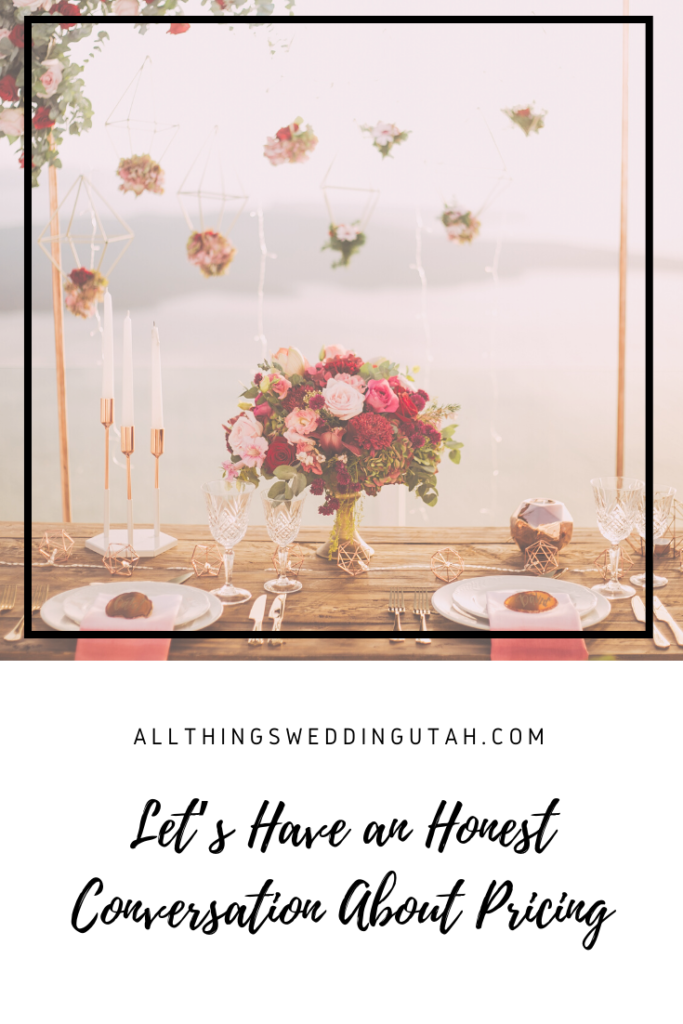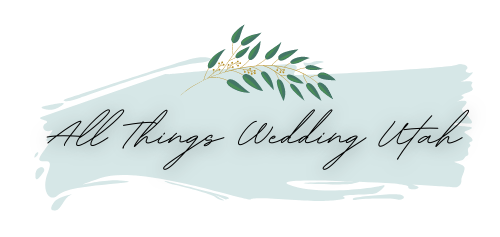Some of the links in this post are affiliate links. This means if you click on the link and purchase the item, I will receive an affiliate commission at no extra cost to you. All opinions remain my own.

Weddings are expensive. This is well known and it drives everyone insane. I was a bride not that long ago and the budget frustration was insurmountable. But why? WHY is it so darn expensive to have a wedding–even a small, casual one? As a photographer and as a wedding vendor, I want to be transparent about why I charge what I charge so I thought I’d open up the conversation about pricing in a way that maybe alleviates some of that frustration. This is from the perspective of a photographer, but it might apply to other vendors as well.
The most common reasons I hear for wedding photography being pricey are that equipment is expensive and experience/quality is worth more.
These are absolutely true, but they don’t quite tell the whole story. Realistically, for a photography business starting out, equipment is going to be a huge expense but now that I’ve been shooting for ten years, I’m not dropping thousands of dollars every year on new cameras or lights, so equipment isn’t a huge factor in my pricing structure. Is charging more for experience/quality justifiable? Yes, I think so. I would have never paid the amount for photos that I did at my wedding if the photographer had never shot a wedding before.
But here’s the thing: Photography was a huge priority for my wedding day, but maybe it’s not for you. Maybe you care more about the venue or the flowers or the food, and that’s fine. As long as you have your priorities in order, you’ll have an easier time hacking out a budget that you can actually stick to. I went over budget on photography by $1000 (yup) but I compensated for it with money from lower-priority things, like decor and food. Make a list with your partner and decide, if it comes down to it, what you’ll cut back on in order to have something else you really want.
And here’s another thing: Weddings are expensive … and running a business is, too. A lot of the time, I feel like this:
Insurance, advertising, taxes, licensing, web subscriptions, utilities, studio rental, printing, the list of business expenses goes on and on. These expenses are absolutely the main reason I charge the rates I do, because at the end of the day, I’m really not making that much profit on one wedding. And I’m happy to share a little basic math to maybe make it clearer.
Let’s say I want to make $35,000 per year (this is the rate before taxes that I made at my old full-time day job. It was enough for me to live on). Per week, that’s roughly $673. I can shoot two, maybe three, weddings per month and not feel completely burned out, so at my most basic wedding rate of $1199 for, let’s estimate 30 weddings per year, I’m getting about $691 per week. Woohoo! I made my target goal. But then it gets more complicated considering that that $691 is before taxes and all business expenses. But, it also doesn’t take into account the money I make from portrait sessions and birth stories and also doesn’t consider that the winter is a very slow time while summer is pretty busy.
So, numbers suck, but basically what I am trying to say is that I have to price myself for the long haul–the amount of money I make fluctuates from month to month, week to week. My goal is to survive the times where I don’t have any bookings, and, ideally I would love to make more than $35,000 per year and have people book higher than my basic rates.
OK, math tangent over.
How does this translate to you brides and grooms?
Well, I want to talk to you a little about insurance and taxes and all that business-y stuff. I promise, it will relate to you and your wedding. Taxes are probably my most soul-suckingly largest expense, followed by insurance. When I see photographers that charge crazy low rates (maybe around $500 for all-day wedding coverage), I can’t help but think these businesses are not paying their taxes (bad, BAD idea, the IRS will find you) or don’t have insurance (also not a great idea). I don’t know this for sure and I don’t want to assume (because maybe they actually have an awesome business model), but this is where my brain goes to due to my own experiences in business calculations.
Back to the bad ideas above about not paying taxes/insurance.
How do these affect your wedding? The taxes thing doesn’t, honestly. But it does give you an insight to how a vendor runs their business, and maybe it’s not as professional as you would like. Insurance, though, may very well affect your wedding or at least your experience. The two types I’m talking about are equipment insurance and liability insurance. Equipment insurance is not the concern of the bride and/or groom–if that photographer is fine with risking having a drink spilled on their camera or some other issue, that’s on them. But did you know that many wedding venues require photographers to have liability insurance? It makes sense, too. If a light stand falls on Aunt Ethel, no way is the venue going to take responsibility for that. And what if the photographer gets sick and can’t make it and can’t line up a replacement? Or what if their memory cards corrupt halfway through the reception and you only get half the shots you paid for? Depending on the contract you signed with them, you can hold them liable and they have to refund your money and/or pay damages. This is what liability insurance is for, and not having it can put a business under. If they can’t pay, legal battles are a nightmare and you still won’t get back the photos of you big day. Having a photographer with liability insurance is more a security blanket around your wedding–if something does go wrong, you’ll at least know that you will easily get compensation.
Phew. OK, what did we learn?
A lot of crazy business stuff, yeah, but it all comes back to your priorities. If you are fine with hiring a photographer that may skimp on the business insurance because their prices are extremely cheap, that’s is completely up to you. You just have to be aware and be OK with the possible consequences. If you value quality, experience and security, and photography is top on your wedding list, you’ll have to budget accordingly. I think it’s perfectly fine to ask a vendor how they run their business, and definitely fine to ask if they have insurance. The wedding industry doesn’t have to be this mysterious money-leeching machine that can’t explain itself. I like my clients, and I like capturing their weddings. I want them to be comfortable in my abilities as a vendor and that usually means being open and honest with them. But that’s just my opinion. I know wedding pricing is a sensitive issue, and everyone wants to have their dream wedding for the cheapest price possible. Hopefully this gives some insight to you brides and grooms, and I wish you the best of luck in finding amazing vendors and sticking to your budget.
Sarah Arnoff is a Salt Lake City based photographer specializing in wedding photojournalism, documentary portraiture and antique analog photographic processes. You can contact her via her site www.SarahArnoff.com and follow more of her work on Facebook, Instagram and Pinterest.

